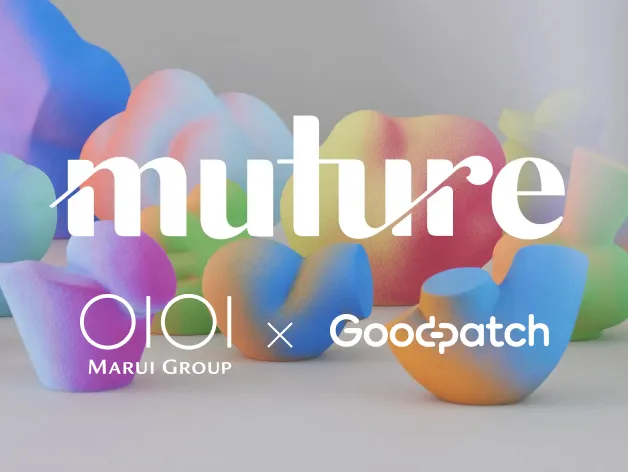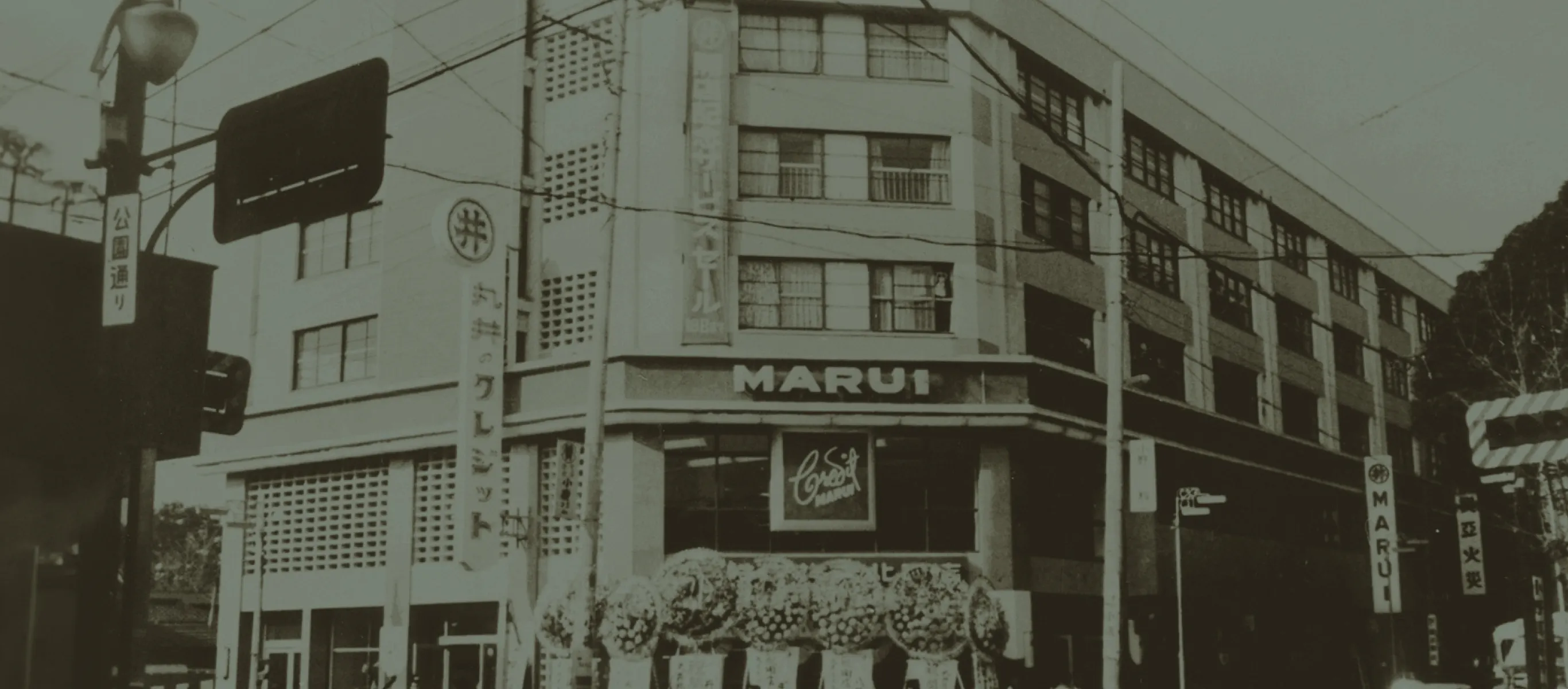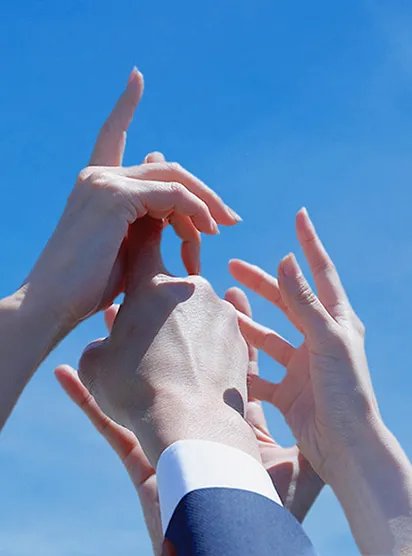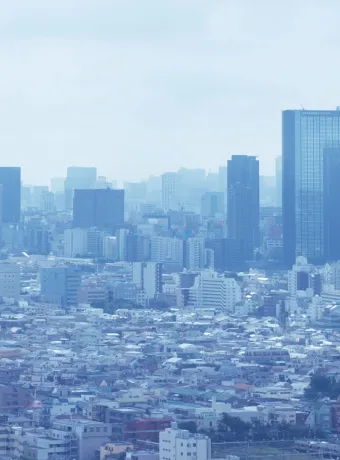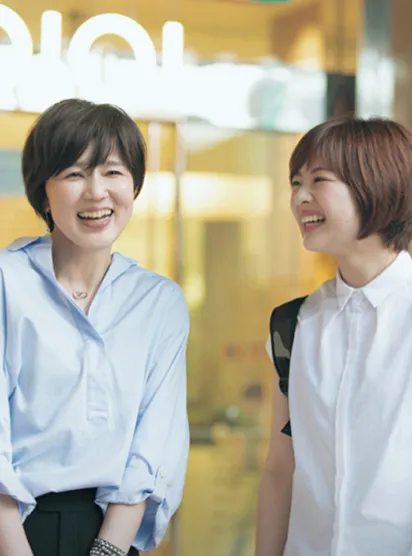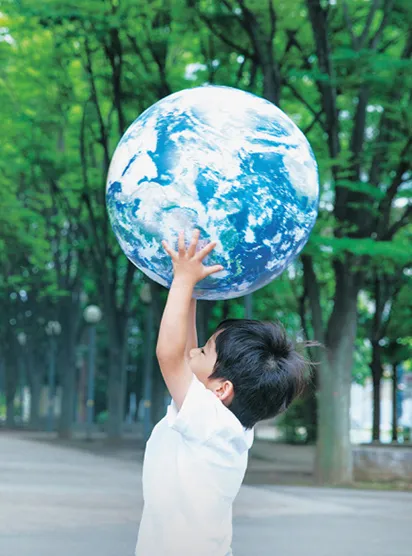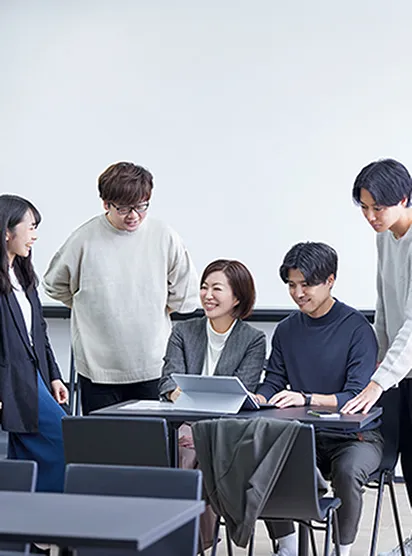
Corporate Culture
Corporate Culture
Change of Corporate Culture
Corporate Philosophy Equating the Development of People with the Development of the Company
MARUI GROUP’s corporate philosophy of “equate the development of our people with the development of our company” is founded on the belief that the Company is able to grow only when its people are able to realize self-actualization. For MARUI GROUP, corporate value is defined as being produced by creating harmony between the interests and happiness of all of its stakeholders and growing the intersection of these interests and happiness. However, this is not the standard view, as corporate value is generally gauged through financial indicators, such as share price or financial performance. The standard view arises from the fact that it is common to focus on the readily apparent corporate value indicated by financial information, ignoring the invisible value supporting financial performance that lies below the surface. The understanding that human capital is the fundamental driver of corporate value creation has inspired MARUI GROUP to pursue the ongoing evolution of its corporate culture and to promote the growth of its people. In this undertaking, we are guided by our corporate philosophy of “equate the development of our people with the development of our company.”
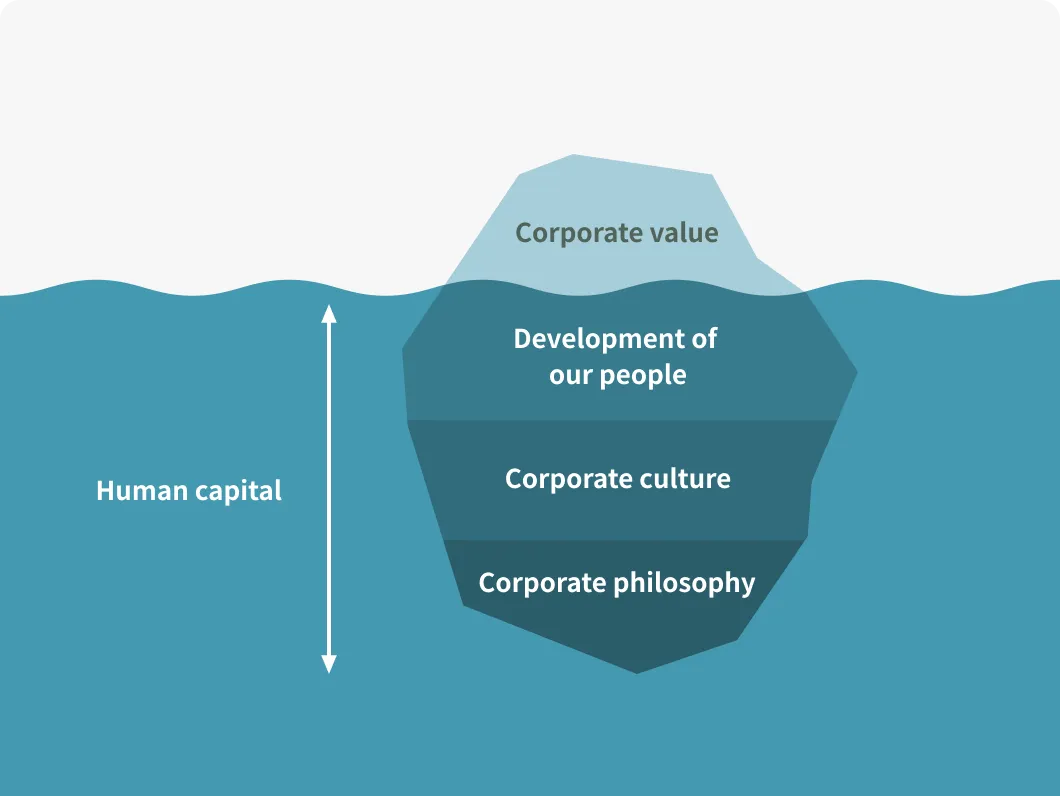
Constantly Evolving Corporate Culture
MARUI GROUP has been constantly evolving its corporate culture for nearly two decades beginning with 2005. This evolution has been driven by the belief that reforms to business strategies are inherently linked to reforms to corporate culture, and that corporate culture acts as the operating system for management. Just as the latest applications cannot function properly in an outdated operating system, an outdated corporate culture cannot hope to produce new innovation. This is the reason why we felt the need to update our corporate culture, our operating system, to be more in line with the times. Reforming a corporate culture takes long-term commitment. Nevertheless, we have dedicated ongoing efforts to advancing steadfast reforms, and these reforms have transformed MARUI GROUP into a completely new company. Moreover, a corporate culture is something that is fostered naturally over a long period of time. It is not something that can be molded through instructions or orders. Accordingly, shaping a corporate culture requires both commitment on the part of senior management and autonomous bottom-up action on the part of employees.
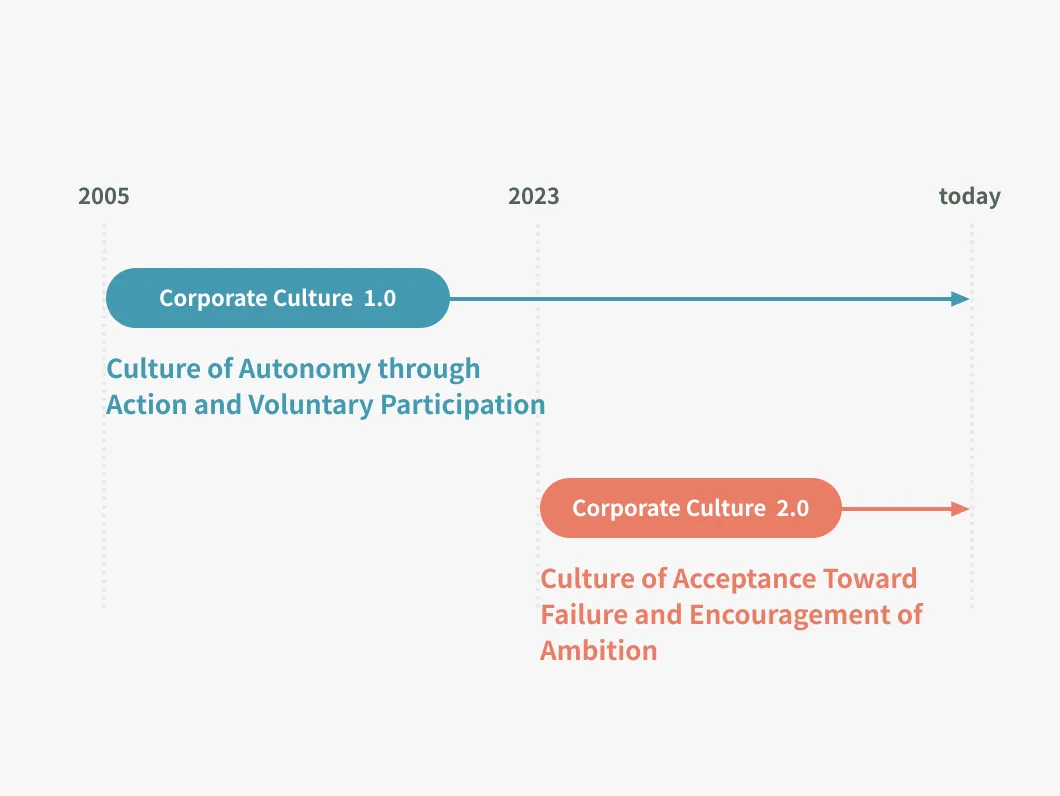
Corporate Culture 1.0 (2007–2022)
Culture of Autonomy through Action and Voluntary Participation
In 2007, President Hiroshi Aoi posed to all employees the question: For what purpose are we working? At that time, we were pressed with the needs to abandon our prior overemphasis on performance and to recover trust within the organization. A number of simultaneous measures were advanced to transform our corporate culture. These measures began with the formulation of our corporate philosophy and discussions with employees. We then went on to implement unique initiatives based on eight focus areas, including promoting engagement and later workstyle reforms, diversity, voluntary participation, intra-Group profession changes, evaluations emphasizing both performance and value, and well-being.
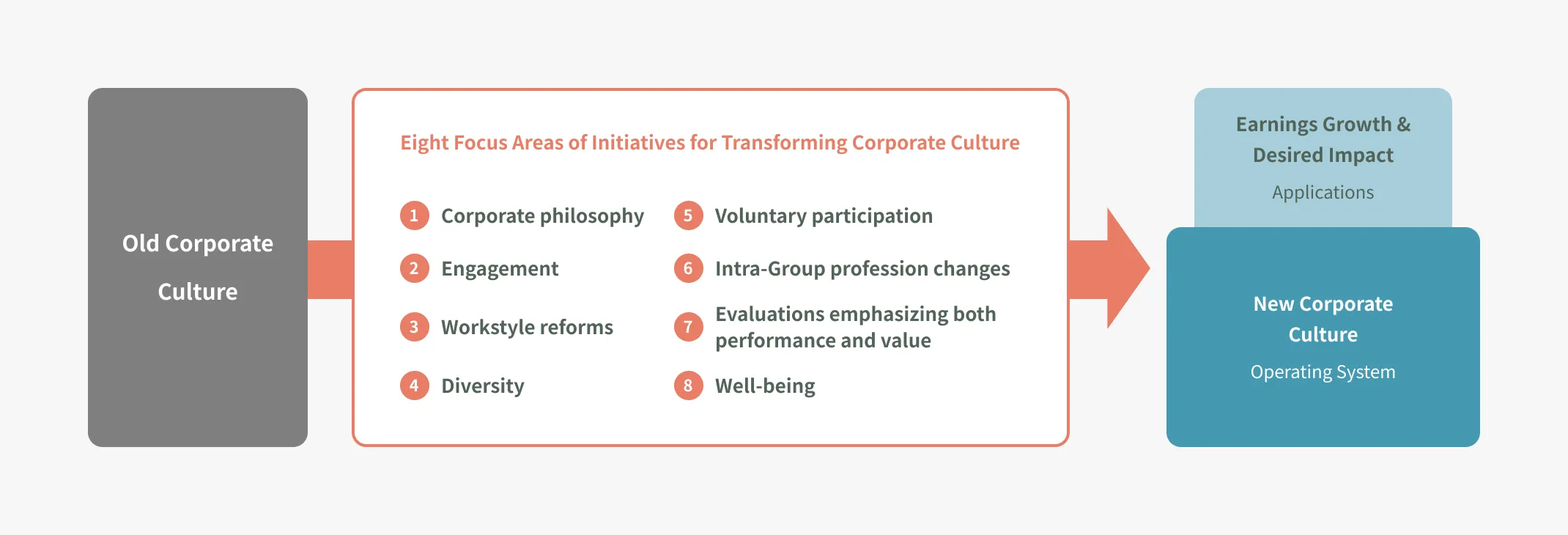
MARUI GROUP in Facts and Figures
Ratio of employees voluntarily participating
85 %
Employees at MARUI GROUP are granted access to learning opportunities on a voluntary, as opposed to compulsory, basis, and employees may choose to take advantage of such opportunities regardless of their age, gender, or rank. Applications for relocations and promotion tests are also based on volunteering.
Ratio of employees undergoing intra-Group profession changes
85 %
MARUI GROUP provides frameworks for relocations to other Group companies supported by shared Groupwide human resource systems. These relocations give employees the opportunity to experience work in different environments akin to a profession change, which helps stimulate their growth and drives innovation.
Ratio of applicable male employees acquiring childcare leave
100 %
Turning its attention toward the elimination of gender preconceptions, MARUI GROUP has been expanding its efforts beyond supporting the contributions of female employees to emphasize the importance of changing the behavior of male employees. To this end, we have been promoting the acquisition of childcare leave by male employees, and these efforts have us maintaining a ratio of applicable male employees acquiring childcare leave of 100% each year since the fiscal year ended March 31, 2019. Male employees are currently able to acquire early and long-term childcare leave of more than one month immediately following the birth of a child.
Ratio of female managers
21 %
MARUI GROUP is promoting reforms to both the agency for awareness and its corporate culture with the aim of contributing to the realization of a society where everyone is able to contribute regardless of their gender. Prior to the update to our corporate culture, it was difficult for female employees raising children to feel motivated to pursue upper-level positions. Today, however, the results of reforms to the systems available to female employees and to the awareness of all employees are being seen in an increase in female employees building their careers in management positions while working shortened hours for childcare purposes.
Average monthly overtime hours
4.5
hours per
person
MARUI GROUP has been diversifying its workstyles and work systems since 2008. Specifically, we have set overtime reduction policies and targets on a by-position basis, driving employee awareness reforms while organizing, streamlining, and digitalizing processes.
Reporting of Corporate Culture 1.0
Corporate Culture 2.0 (2023 and Beyond)
Culture of Acceptance Toward Failure and Encouragement of Ambition
Empowering all employees to fully exercise their creativity is imperative to the quest of MARUI GROUP to achieve earnings growth while generating its desired impact as a company that contributes to the resolution of social issues. Accordingly, in 2023, MARUI GROUP began installing its corporate culture 2.0—a culture of acceptance toward failure and encouragement of ambition. Key to this culture are workstyle and organizational innovation and digital transformation. Thus, we look to promote digital transformation while reexamining the types of organizations we need in order to enable all employees to be able to achieve states of flow through their work.
Action Key Performance Indicators
Innovation is created by people, and their ability to generate innovation is dependent on the degree to which they are able to exercise their creativity. MARUI GROUP seeks to encourage all of its employees to be proactive in taking on new challenges, without fear of failure. We have therefore defined as action key performance indicators the number of new undertakings and attempts at achieving a particular pursuit with the goal of fostering an environment that inspires employees to work toward their ambitions free of fear of failure. Moreover, employees are encouraged to “fail fast, fail forward” to more quickly gain the knowledge necessary to succeed and thereby accelerate innovation.

Flow States Enabling Full Exercise of Creativity
MARUI GROUP has embraced the idea of flow defined by psychologist Mihaly Csikszentmihalyi as a tool for enabling all employees to fully exercise their creativity. Flow refers to a state in which an individual becomes so immersed in a task that they lose track of time and of themselves. This state is generally experienced when an individual is presented with a challenge of a level that matches their skills. MARUI GROUP believes that enabling employees to experience a flow state through work based on their own passions will allow them to fully exercise their creativity to surmount challenging tasks and grow through the process. For this reason, MARUI GROUP is seeking to foster a corporate culture in which employees are empowered to participate in the planning and operation of businesses of their own volition in order to increase the number of employees who are exercising autonomy and creativity based on their interests.
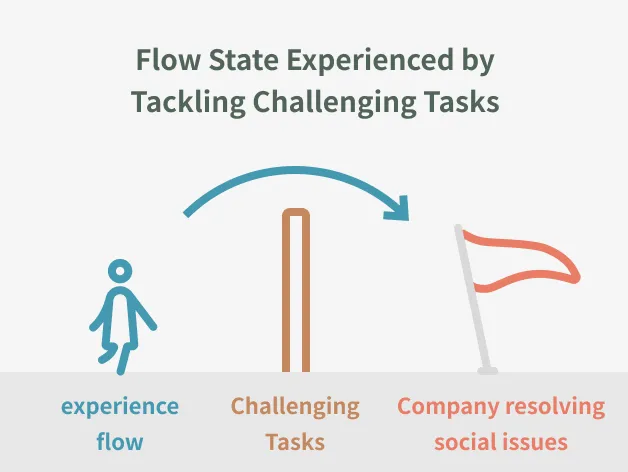
Workstyle and Organizational Innovation
MARUI GROUP’s workstyle and organizational innovation activities are aimed at allowing any individual to begin making contributions early in their career, regardless of their age or gender. Specific examples of these activities include project team-oriented workstyles and organizations. At MARUI GROUP, project teams comprising members volunteering based on their interest in various themes pertaining to achieving earnings growth while generating our desired impact are advancing activities that spread beyond the boundaries of their organizations and of the Group. In addition, we are creating autonomous organizations without direct supervisors. Under this model, the role of traditional section managers has been reframed as that of a team supporter tasked with developing a flat organization in which all members act with autonomy. Another innovation initiative is promotions of individuals to management positions as early as the age of 26, which allows talented individuals to more quickly begin contributing in management roles.
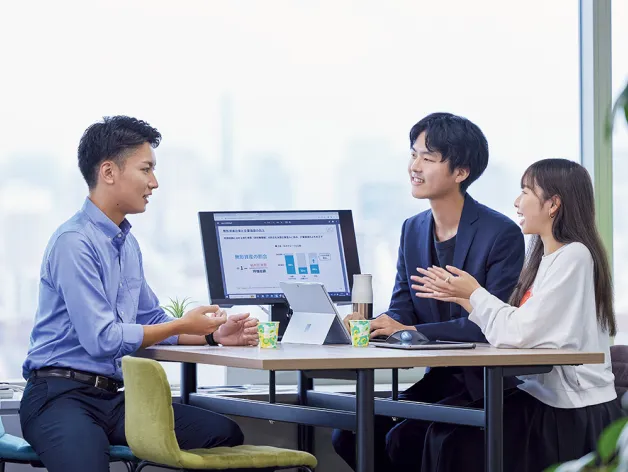
Digital Transformation
MARUI GROUP is promoting digital transformation based on the understanding that digital technologies are imperative for rectifying the disparity between the current state of the Company and its vision. The strength of digital technologies comes in their ability to allow us to swiftly verify hypotheses on shorter cycles and to leverage our limited assets to maximum efficiency. However, MARUI GROUP has previously faced challenges in embracing digital transformation due to a lack of the type of highly talented digitally proficient human resources needed to advance this transformation. We sought to overcome these challenges by establishing Muture Corporation in 2022 as a joint venture together with Goodpatch Inc., a cutting-edge user experience design company. Through Muture, we began recruiting the type of specialized experts who would not normally be attracted by the MARUI GROUP brand. These professionals are currently aiding us both in the development of products and in our transformation into a more agile organization.
